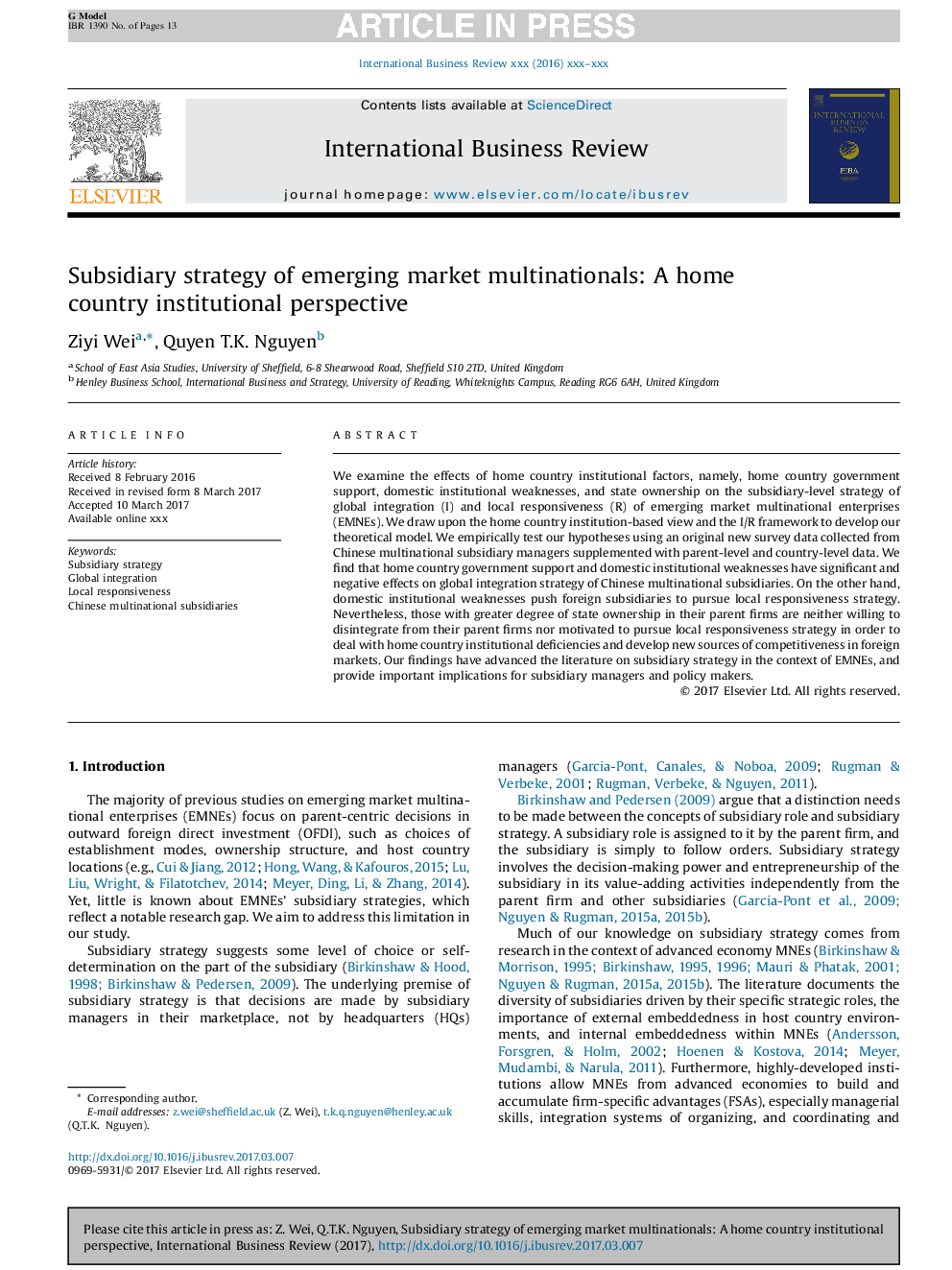| Article ID | Journal | Published Year | Pages | File Type |
|---|---|---|---|---|
| 5107012 | International Business Review | 2017 | 13 Pages |
Abstract
We examine the effects of home country institutional factors, namely, home country government support, domestic institutional weaknesses, and state ownership on the subsidiary-level strategy of global integration (I) and local responsiveness (R) of emerging market multinational enterprises (EMNEs). We draw upon the home country institution-based view and the I/R framework to develop our theoretical model. We empirically test our hypotheses using an original new survey data collected from Chinese multinational subsidiary managers supplemented with parent-level and country-level data. We find that home country government support and domestic institutional weaknesses have significant and negative effects on global integration strategy of Chinese multinational subsidiaries. On the other hand, domestic institutional weaknesses push foreign subsidiaries to pursue local responsiveness strategy. Nevertheless, those with greater degree of state ownership in their parent firms are neither willing to disintegrate from their parent firms nor motivated to pursue local responsiveness strategy in order to deal with home country institutional deficiencies and develop new sources of competitiveness in foreign markets. Our findings have advanced the literature on subsidiary strategy in the context of EMNEs, and provide important implications for subsidiary managers and policy makers.
Related Topics
Social Sciences and Humanities
Business, Management and Accounting
Business and International Management
Authors
Ziyi Wei, Quyen T.K. Nguyen,
